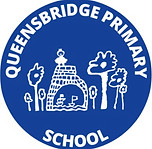
History
History at Queensbridge Primary School
The aim of history teaching at Queensbridge Primary School is to encourage children to take an interest in the past and to understand how the world has changed and developed. History helps children to understand different societies and how the past has influenced life today in the UK and across the world.
In EYFS (Nursery and Reception), children are taught about history within the ‘Understanding the World’ area of learning. In Nursery, children will begin to make sense of their own life-story and family’s history, and recognise similarities and differences between the past and the present. In Reception, children will build on this learning by making connections between the features of their family and other families as well as comparing and contrasting characters from stories, including figures from the past. This strand supports children to make sense of the world around them and also help them to develop a wide and enriched vocabulary.
In Key Stages 1 and 2, children are taught about significant people, events and different aspects from British and world history. Chronology is taught across both Key Stages so that children have a good understanding of different time periods. Children are inspired to think like historians by asking and answering questions, investigating and interpreting evidence and providing reasoned views. Lessons are planned on key enquiry questions and children have the opportunity to look at and examine different artefacts to understand how and why evidence is used. All year groups have the opportunity to go on enriching trips to museums and galleries to gain a better understanding of a period of history through exploring primary sources and exhibits.
History provides many cross curricular opportunities and helps children to make links across the different subjects studied. Children are expected to show that they can apply their literacy skills in their historical writing and use different historical terms to effectively communicate their ideas. Geography is also closely linked to history and lots of our lessons combine both subjects. For example, children learn about important settlements from the Stone Age; examine the relationships between different countries; locate different civilisations and explore the spread of empires. Local history plays an important part in our history curriculum and children use historical sources and fieldwork to explore how and why the local area has changed.
During the year, we will celebrate and commemorate important events and people from world history such as Remembrance Day. In October and throughout the year, children will also learn more about black history and significant diverse figures. For Black History Month we focus on a different theme each year and some classes will participate in workshops at the Hackney Museum to help deepen their understanding on the theme.
The history curriculum aims to ensure that all children:
-
Develop a curiosity and understanding of the past in the UK and the wider world.
-
Develop a passion for the subject.
-
Develop an overview of world history.
-
Understand how evidence is used to interpret the past.
-
Understand historical concepts such as continuity and change, cause and consequence, similarity, difference and significance.
-
Reflect, debate, evaluate and discuss the past.
-
Make connections to other subjects studied.
-
Learn through engaging and practical lessons.










